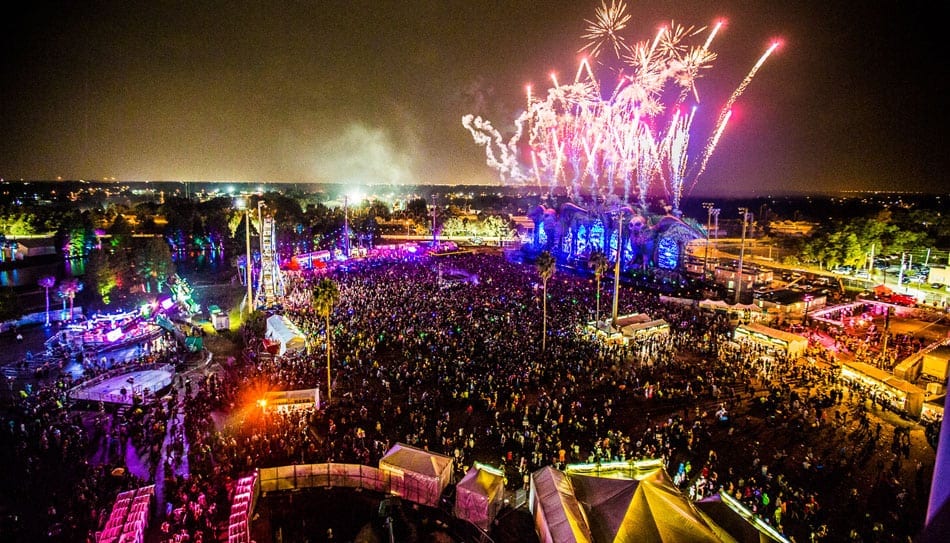Most customer data-collection efforts are based on the information they give you. It’s valuable to be sure, but it’s not 100% trustworthy because you have no way of verifying that what you’re getting is accurate.
But actions don’t lie. And being able to track what people do will tell you so much more about them, what they like and how you can adapt to their needs.
This is what makes live events such a goldmine for anyone who wants to get to know their customers, as long as the right data-capturing mechanisms are in place. The problem is that these mechanisms aren’t often in place, and all the potential data capturing opportunities live events afford are wasted.
Ticket Sale Data Will Only Take You So Far
Most event planners will capture the data they get from ticket sales and stop there. They’ll get a name, an address/email address and maybe a phone number, a payment method and the price of the ticket sold. With this information, they can build a robust mailing list and segment guests geographically and by how much they were willing to pay for a ticket. And that’s really about it.
But focusing data-collection efforts solely on ticket sales leaves quantitative and qualitative gaps in the effort to learn more about who’s actually attending your event.
The Rule of 2.2
In our State of Live report, we discovered the average ticket buyer will purchase 2.2 tickets for an event (and that number goes up for sporting events). That means you’re getting data on less than half your attendees. Then, if you factor in no-shows and tickets changing hands as gifts, less than half becomes a lot less than half. This quantitative hole makes any insights you glean incomplete at best and insignificant at worst.
- You can’t glean any deep customer learnings.
- You can’t evaluate the effectiveness of the elements at your event.
- You can’t use the ticket sales data to improve your next event.
With an on-the-ground data-capturing plan in place, you can do all these things.
Demographic to Psychographic
An on-the-ground data-capturing plan lets you focus on the actions your guests take at your event, which gives you insights into how they feel, what they want, what you’ve done to satisfy those wants and what you could be doing better. You’ll be able to see what about your event is sticking and what isn’t, what to retain, what to eliminate and what you can do to get more people to show up next time.
But how do you collect that data without being intrusive? How do you track people’s actions without making them feel like they’re being watched?
Our answer was to build this functionality into a system that already makes their at-event experience easier and more enjoyable.
Tracking with Intellitix to Know Your Customer
The Intellitix platform digitizes virtually every interaction an attendee would have at your event. The individual RFID “ticket” they receive — be it on a bracelet, lanyard or card — can act as their access pass to the event (and areas within the event), a form of cashless payment they can load up, a way to enter on-site contests and a method of interacting with sponsors.
For your guests, this digitization leads to fewer lineups, less waiting and quicker access to just about everything. But for you, it’s a game-changer in terms of getting to know your customer because you’ll be able to track what they do, where they go, what they buy and which sponsors they engage. This data will give you robust insights into who your customers are. At the same time, it’ll give your sponsors real ROI metrics to consider (how many people actually engaged) versus more generic fuzzy metrics like “exposure” which don’t accurately reflect the effort you put into making participation worthwhile to your sponsors. Exposure means nothing if it doesn’t lead to action.
Of course, your guests won’t be thinking about that as they go from area to area, vendor to vendor and sponsor to sponsor. They’ll be too busy having a great time and wondering why all events aren’t this easy.
And with all that data being collected in real time with no effort required on your part, you’ll feel the same way.
5 Data Points to Know Your Customer
- Attendee names, addresses, phone numbers, and email addresses. You’ll get this information at the point of purchase, but as we mentioned above, you probably won’t get everyone. Setting every guest up with an individual RFID ticket will get you what you need, and will give you a golden opportunity to build a relationship.
- Purchases. Setting up a cashless payment environment will give you insights into audience preferences for food and booze, swag and whatever else is on offer at your event. On the flip side, you can use the data to identify high/low performing vendors, who to invite back next time and who to weed out.
- Movements. Charting foot traffic will tell you what kinds of areas are worth doubling up on (like a second beer tent) and what you might be able to do without (like an exhibit or interactive experience). You can do this through our access control capabilities.
- Sponsor engagements. The data you can collect through our experiential options are added value you can include as part of a sponsor package, so they don’t have to worry about collecting it themselves.
- Time on site. Tracking the time guests spend with you and when they leave could give you insights into start-times, the watchability of the talent you bring in and the cadence of your programming. Again the access control functionality we offer can help with that.
Don’t Miss Out on the Benefits of Event Data
By implementing event technology that will allow you to collect valuable data from your event, not only will it help you know your customer, but it will also allow you to gain insights on how to improve your event next year. Some potential results you can see are lower marketing spend and better targeting, improved vendor selection, new revenue streams, and much more. So why continue being in the dark when it comes to your event when you can use data to improve the event for both your attendees and yourself. Get in touch with the Intellitix team to learn how we help you get started utilizing event data.


